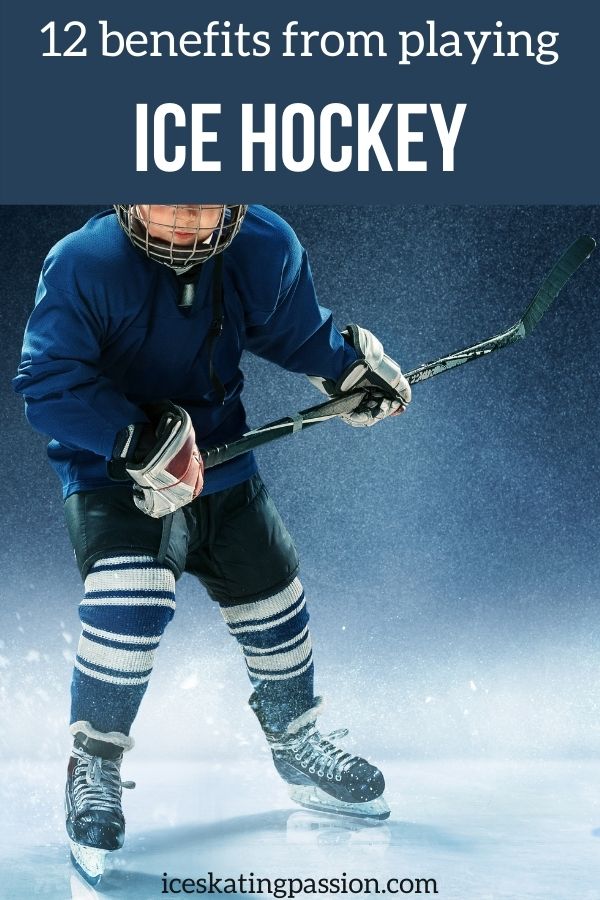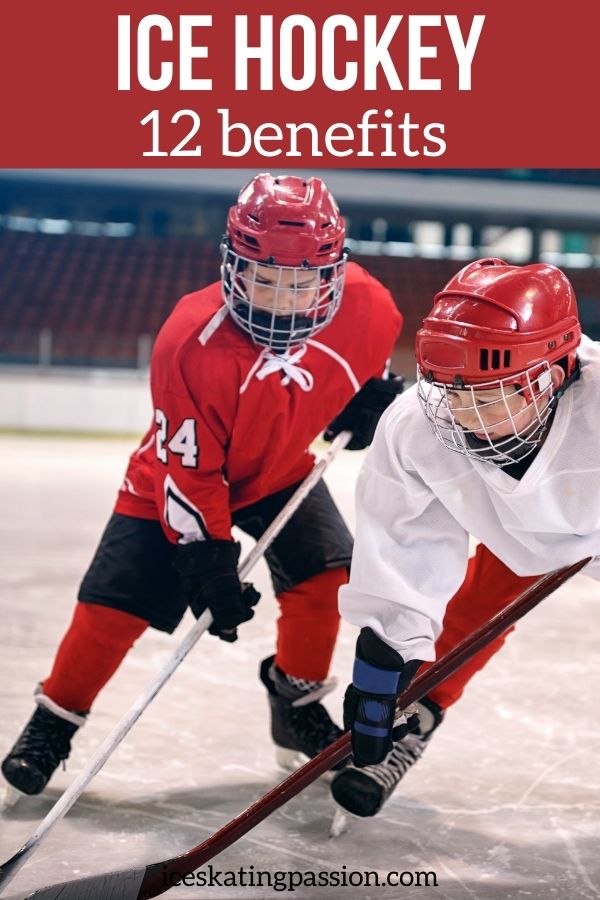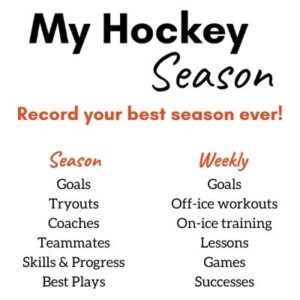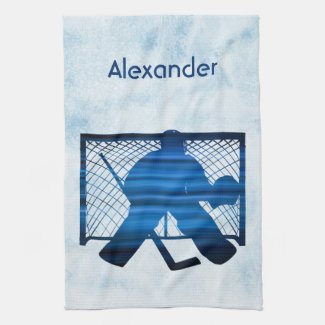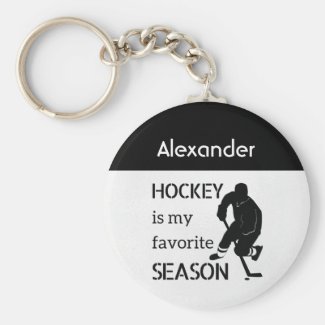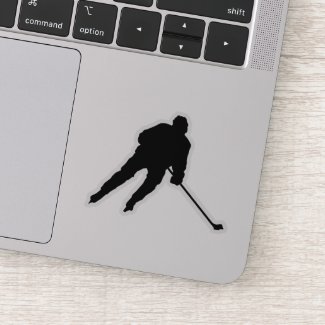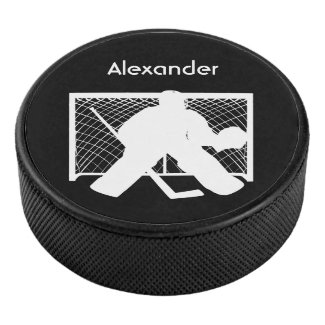Wondering why play hockey, apart for the fun of it?
Discover 12 of the benefits from playing ice hockey: mental, social and physical advantages to improve your own life and your kid's life.
Lessons and benefits that will last for a lifetime for you or your kid.
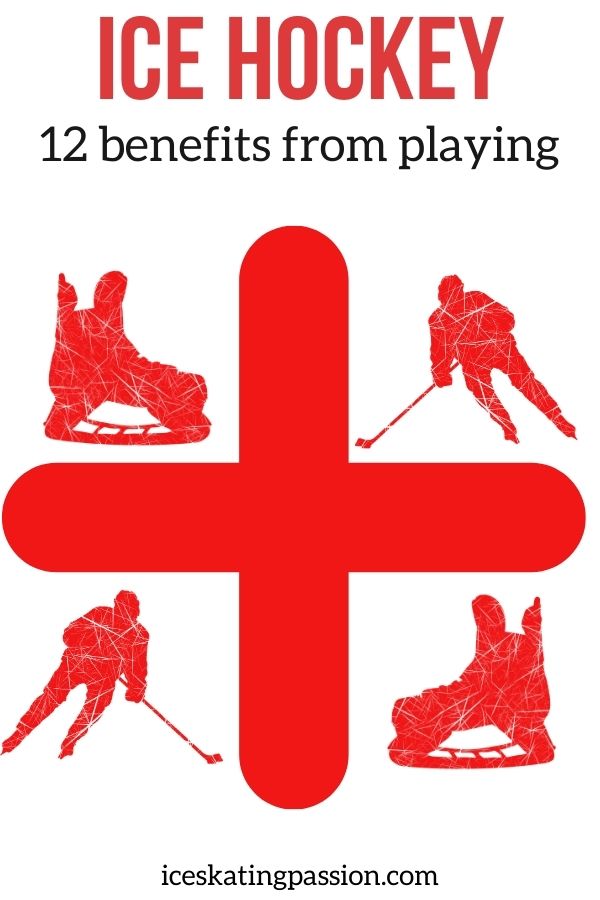
This article may contain affiliate Links (info on the Disclosure page). If you purchase using my link, I get a commission at no extra cost to you.
Mental and social benefits specific to hockey
#1 - Learn nonverbal communication
Despite the mouth guard and the heavy protective equipment, ice hockey is very much a communication sport.
It happens via gestures and eye contacts.
You have to be able to communicate very fast and effectively with your teammate in the middle of a play.
#2 - Learn Teamwork
Ice hockey is a team sport. And with the speed of the game, the team must work as one.
Every year, the sport proves to be a great way for young kids to learn about bonding and working towards a common goal.
Skin color, looks and personality, or socioeconomic status are of no importance. Instead, every team member must be committed, talented, dedicated, and adhere to work ethics.
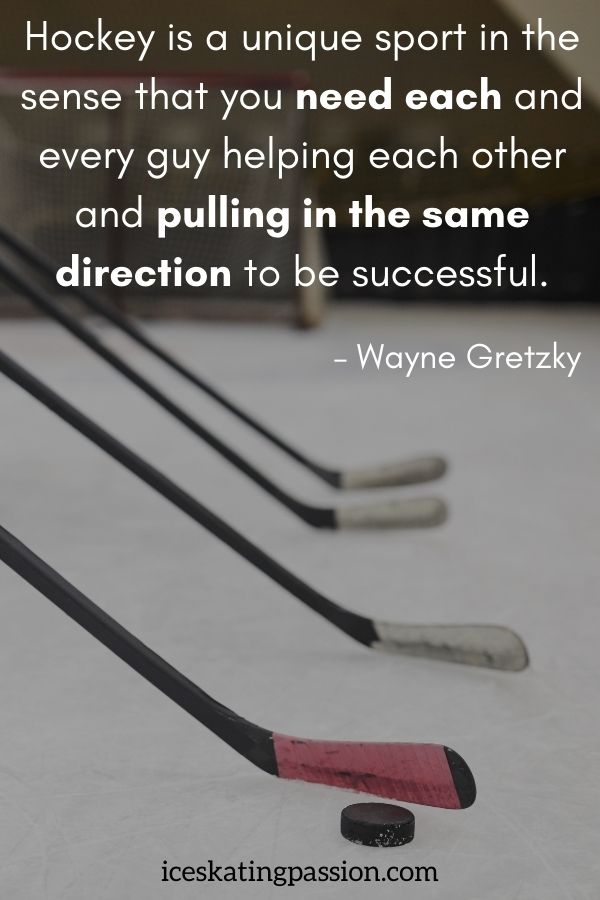
#3 - Learn Respect
The game teaches both, children and youth, wonderful life skills. One of them is to develop a sporting spirit. Your team may have won or lost. Regardless, both teams must line up at the center after a match. The idea is to offer congratulations to one another. In other words, the losing team appreciates the efforts of the winning team. Similarly, shaking of hands is imperative too. This shows that no one harbors hard feelings.
#4 - Learn to overcome difficulties
Ice hockey is a lively game, full of ups and downs. For example, each team has to score as many goals as possible. Team members may find themselves knocked down. Penalty shots are a norm too. Whatever is the case, you always get a chance to make up for earlier mistakes, in the next game. Thus, through teamwork, you learn to tackle challenges. You also learn to handle disappointments and successes with maturity.
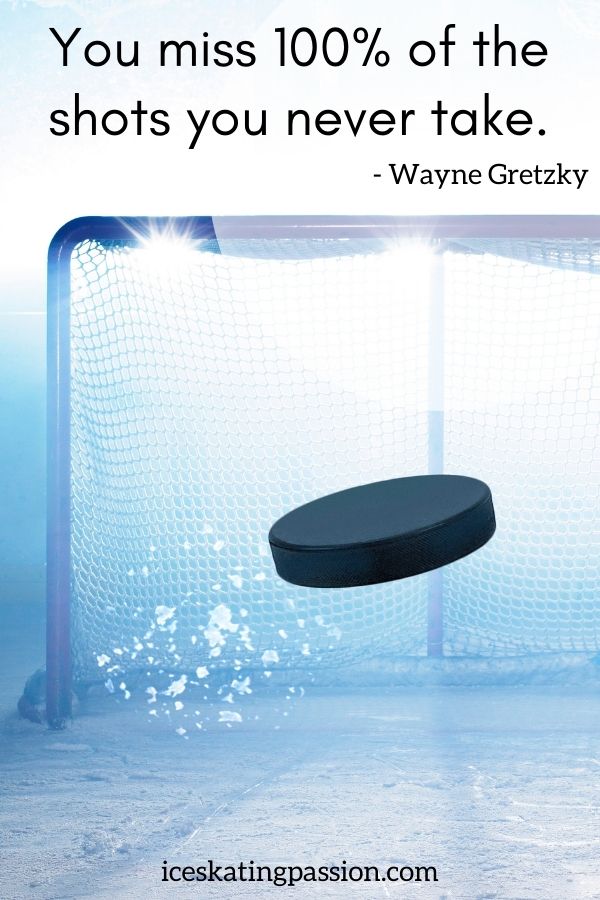
#5 - Value preparation / long term thinking
This is a great life lesson from all sports.
It does not matter if you fail to achieve instant gratification. The wait for long-term gains is well worth it!
Practice games prepare your body, mind and spirit. Gradually, you achieve personal success, as well as success in life.
#6 - Develop Mental agility / Concentration
Ice hockey is a fast game. The momentum can change in seconds. This should help any player in future. You will be able to engage in quick decision-making whenever the need arises and to think on your feet too.
Similarly, you improve your concentration. Even while playing/learning, you comprehend the cause-effect events that take place on the field. In turn, you develop relevant strategies for handling any situation successfully. This should help you in your personal/professional life too.
Mental imagery is another useful talent. You are able to visualize a clear picture in your mind. This means you create a mental action plan for achieving a particular goal.
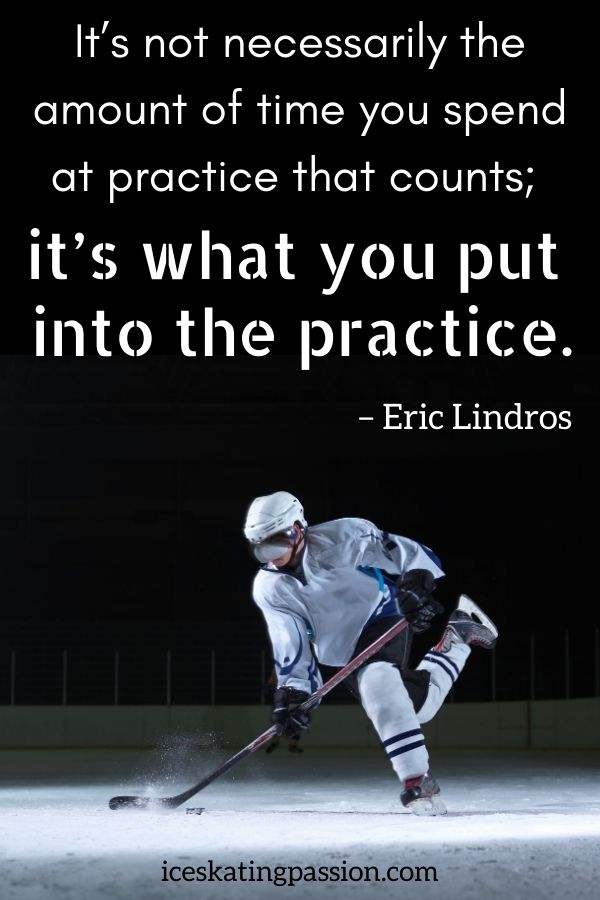
The overall ice skating benefits
Hockey is an ice skating sport. Therefore, all the physical benefits of ice skating are gained as well when playing hockey, whatever the position in the team. You can learn more in this article, but here is a summary:
#7 - Hockey improves Motor Coordination
Ice skating is all about balance. Balance requires your whole body and your brain. Everything has to move as one: your feet and legs of course, but also the position of your arms, torso, neck, head and where you are looking. It engages every part of your body to control the movement.
This activity develops pathways in your brain, creating connections. And those remain open after practice.
#8 - Hockey increases Joints Flexibility
Your joints will become more flexible, thanks to playing hockey on the ice. The re-awakening of several important muscles will help you move more. Even the impact on the muscles and joints is low. Therefore, ice hockey can prove more beneficial than running and cycling.
The game ensures continual movement. However, there is no excessive stress on the joints or muscles. Instead, the connective tissues around the joints become strong. So do the ligaments. Regular flow of synovial fluid helps in keeping the joints well lubricated. Just make sure that you do not jump around.
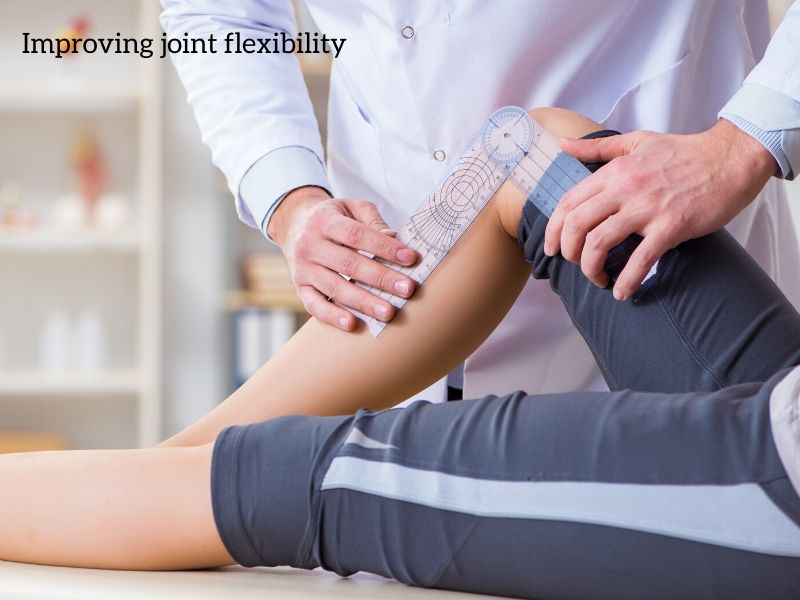
#9 - Hockey builds muscles & improves posture
It does not matter if you are moving leisurely or speedily. The muscles in your abdomen, hips, thighs (quadriceps), knees (hamstrings), legs, calves and buttocks (gluteus maximus) gain a great workout from ice skating. They become strong and well-toned. The muscles increase in mass too.
Skating is all about balancing on a slim, metal blade. Therefore, the muscles of your abdomen and legs contract and relax continuously. These core muscles gain in strength. Furthermore, the constant balancing results in a good posture.
#10 - Hockey increases Cardio Health and Endurance
As you skate, you use your arms to balance better. There is also consistency in stroking the puck. Hence, your heart begins to pump more vigorously. The heart rate increases. The blood circulation improves. It follows, therefore, that your cardiovascular health improves.
Now, you are moving around the rink continuously. Your muscles are contracting constantly. Your heart rate remains high. Therefore, you are building up endurance.
When practicing ice skating, ice hockey skating is akin to light jogging or moving up a hill.
Off ice hockey workout routines should complete the on-ice training. Learn more on off-ice training.
Physical Benefits of playing hockey - specific
#11 - Ice hockey develops hand-eye coordination
Because you have to master the puck as it is sliding on the ice, the game is great for enhancing hand-eye coordination. For instance, your hand-eye reflexes work faster.
Practice will increase your agility and coordination during play to handle your skates and hockey stick splendidly. Thus, the puck goes soaring into the goal post all that much faster!
All these abilities come into play in your day-to-day life too. You are comfortable with parking a car, playing outdoor games, reacting to sudden dangers etc.
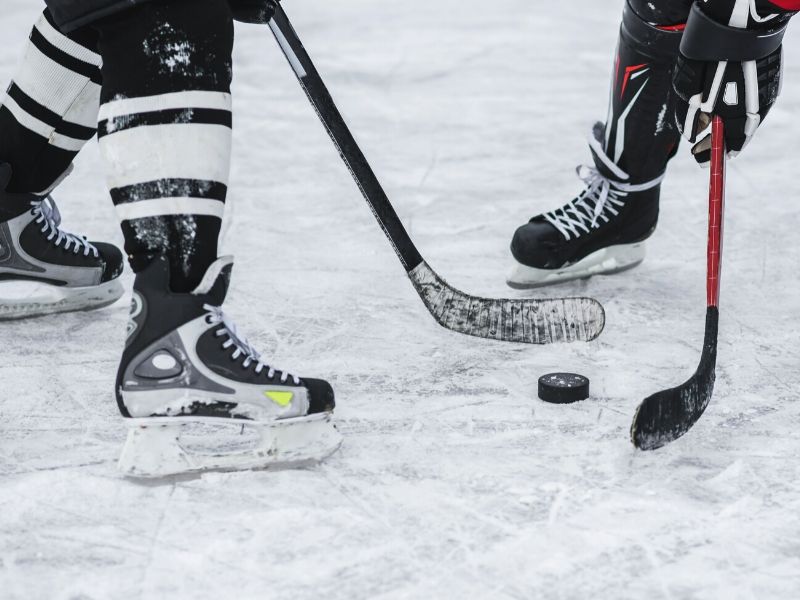
#12 - Ice hockey improves Reflexes and Reaction time
As I have written many times, ice hockey is a fast game. Therefore, it improves the spontaneous reactions of players.
Any kind of stimulus gets an immediate response. In other words, your reaction time improves. In turn, you will be able to make correct decisions during play.
For example, a goalie has to quickly notice the puck being shot and move accordingly to stop it.
And players have to react when the puck is thrown to catch it while avoiding body checks.
#13 - Ice hockey is fantastic for visual perception
Visual perception is the brain's ability to make sense of what the eyes see. It is different from the acuity which is how clearly you see.
The quantity of information to manage during a game of ice hockey is huge: the position of the players, the position of the puck, the speed of the puck, the state of the ice... Therefore, by playing hockey, your brain will learn to:
- Process information faster
- Discriminate information faster (keeping only relevant information to take a decision)
- Pay more attention to the essential information
- Understand spatial relationships
- Assimilate form constancy to understand where the puck is going to be
Those are some of the building blocks of visual perception which are essential in the development of any child.
Dangers - are the benefits worth it? Should you or your kid play hockey?
All those benefits are great, but, as a hockey mom, you might still be worried for your kid.
Should he/she play hockey? Are the dangers too important?
Let's have a look.
First know that injuries have decreased significantly. Rules have changed and protective equipment has improved.
Today most injuries are minor.
Why is it dangerous?
Well, the skaters are skating fast, the puck is gliding fast, the sticks are moving in all directions and the skates have blades... let's face it, there is potential for injury.
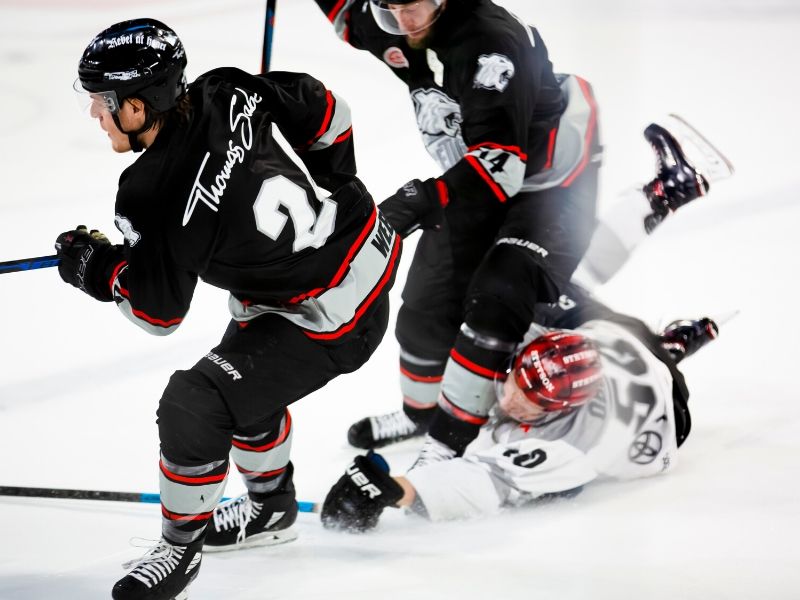
The dangers of ice hockey
The main types of injury from hockey area:
- cuts
- bruises
- muscle strains
- ligament tears
- teeth damages - make sure to wear a mouthguard (my tips to choose the best one here)
Which can happen in any sport and just playing at home.
The most serious injuries such as:
- concussion
- broken bones
- spinal
do occur but not frequently and almost only with grown-ups playing dirty.
Mitigation of the dangers
- Make sure you or your kid play in a league with strict rules
- Purchase quality protective gear. Like a motorbike helmet, a hockey helmet should be changed after a very strong blow. Cracks in the internal structure will make it less effective.
- Hydrate frequently - it is important to keep muscles and ligaments flexible
- Warm-up and stretch. Sadly, it is often overlooked, especially in those kinds of sport. But warming up before and stretching after practice should be non-negotiable to keep muscles and ligaments in good conditions.
- Train off season to keep your body in great shape and avoid injuries typical at the beginning of the season when muscles are not prepared
- Take good care of your skates and equipment
Ice hockey protective gear to wear
- Helmet
- Shoulder pads, knee pads, elbow pads, shin pads,
- Gloves
- Hockey pants with padding and shell
- Athletic supporter and cup for boys
- Neck protector
- Mouth Guard
- Good skates with proper fit
You might also be interested in:
